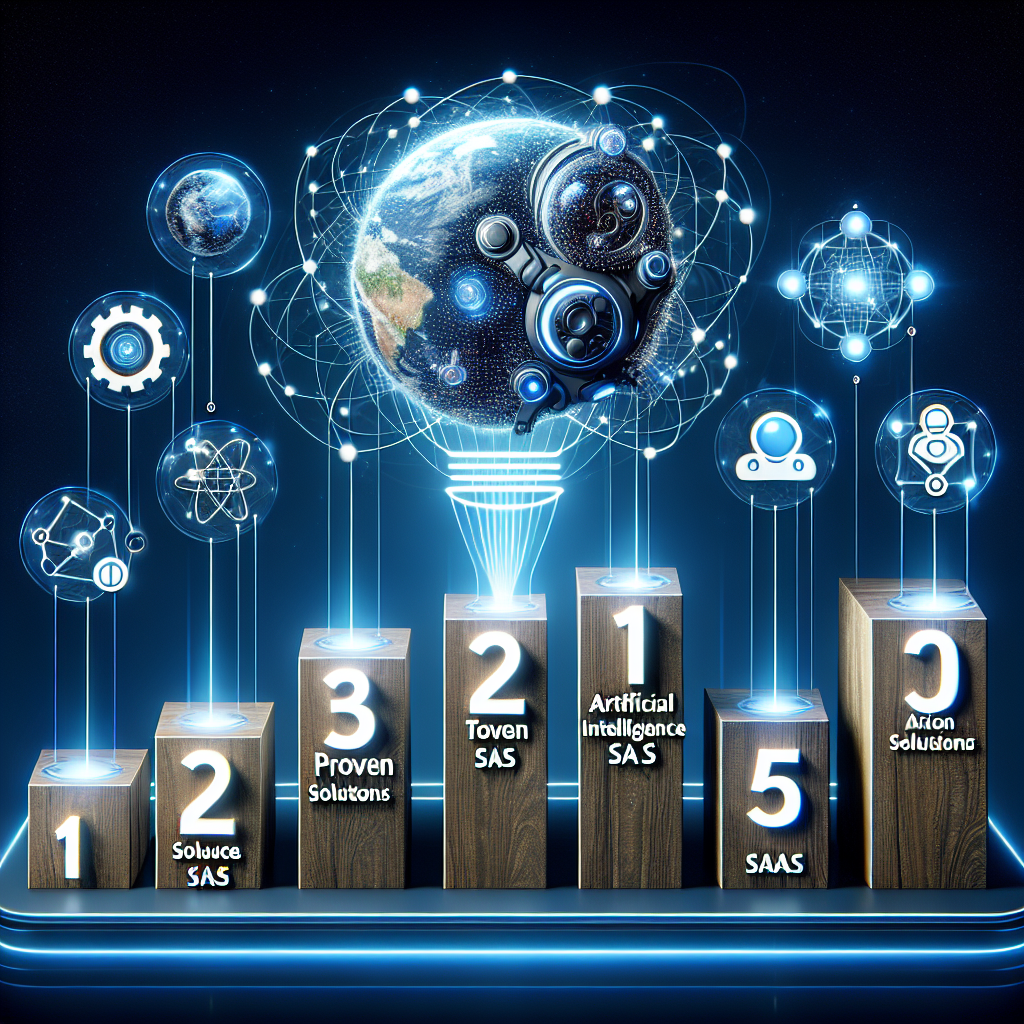In the ever-evolving tech landscape, businesses worldwide are turning to Artificial Intelligence (AI) Software as a Service (SaaS) solutions to drive efficiency, innovation, and competitive advantage. With AI’s potential to provide smart, automated, and self-learning systems, the SaaS model allows for a seamless integration of such solutions, making them accessible, affordable, and easy to implement. In this comprehensive review, we unveil the top 10 proven AI SaaS solutions in 2025, offering insights into their unique features, benefits, and potential drawbacks.
1. Google Cloud AI Platform
The Google Cloud AI Platform stands as a fully-managed, end-to-end platform for developing, deploying, and sustaining machine learning models. It’s designed to provide businesses a seamless pathway from ideation to deployment, making it the go-to solution for organizations looking to incorporate AI into their operations.
Pros
- Comprehensive suite of tools and services for machine learning
- Offers scalability and flexibility
- Seamless integration with Google Cloud Services
Cons
- Can be complex for beginners
- Pricing can be high, particularly for larger datasets
2. IBM Watson
Famed for its ability to ‘learn’ from large amounts of data, IBM Watson provides a series of AI tools and applications. It’s particularly lauded for its natural language processing capabilities and deep learning insights.
Pros
- Powerful natural language processing
- Efficient at handling unstructured data
- Strong security features
Cons
- Can be expensive for small businesses
- Requires technical expertise for implementation and management
3. Microsoft Azure AI
Microsoft Azure AI offers a comprehensive suite of AI services and cognitive APIs that help developers build intelligent applications without requiring machine-learning expertise.
Pros
- Wide range of AI services
- Highly scalable and customizable
- Strong integration with Microsoft products
Cons
- Can be complex to navigate for first-time users
- Customer support is sometimes reported as slow
4. Salesforce Einstein
Salesforce Einstein is an AI tool integrated within the Salesforce platform. It offers predictive analytics and machine learning capabilities to help businesses analyze their CRM data and make accurate predictions.
Pros
- Excellent integration with Salesforce platform
- Powerful predictive analytics
Cons
- Limited functionality outside the Salesforce environment
- Additional cost for Salesforce users
5. Amazon Web Services (AWS) SageMaker
AWS SageMaker is a fully-managed service that enables developers to build, train, and deploy machine learning models. It’s known for its user-friendly interface and robust capabilities.
Pros
- Easy to use interface
- Great for both beginners and experts
- Efficient model training and deployment
Cons
- Expensive for large-scale deployments
- Steep learning curve for non-technical users
6. TensorFlow
Developed by the Google Brain team, TensorFlow is an open-source AI software that allows businesses to build and train machine learning models. Its flexibility and scalability have made it a favorite among developers.
Pros
- Strong community support
- Highly scalable and flexible
- Supports a wide variety of tools
Cons
- Requires significant computational resources
- Can be complex for beginners
7. RapidMiner
RapidMiner is an AI platform that provides data preparation, machine learning, and model deployment. It’s lauded for its simplicity and efficiency in executing complex data tasks.
Pros
- Easy to use with a drag-and-drop interface
- Wide array of algorithms and models
Cons
- Expensive for small businesses
- Limited visualizations
8. H2O.ai
H2O.ai offers an open-source platform for data analysis and machine learning. It’s known for its ease of use, scalability, and robust algorithmic support.
Pros
- Strong community support
- Supports a variety of algorithms
Cons
- Requires considerable computational resources
- Can be complex for non-technical users
9. DataRobot
DataRobot provides an automated machine learning platform that empowers users to build and deploy machine learning models. It’s a great tool for businesses looking to harness the power of AI without extensive coding knowledge.
Pros
- Automated machine learning process
- No extensive coding knowledge required
Cons
- Can be expensive for small businesses
- Limited customization options
10. Alteryx
Alteryx provides an end-to-end analytics platform for data scientists and analysts. It combines data preparation, data blending, and advanced statistical functions to provide deep insights.
Pros
- User-friendly interface
- Powerful data blending and preparation tools
Cons
- Can be expensive for small businesses
- Limited machine learning capabilities
Frequently Asked Questions (FAQs)
1. What is AI SaaS?
AI SaaS refers to the delivery of Artificial Intelligence capabilities via a Software as a Service model. It offers businesses the opportunity to leverage advanced AI technologies without the need for in-house expertise or infrastructure.
2. How can AI SaaS benefit my business?
AI SaaS can enhance your business operations in several ways, such as improving customer service, driving innovation, automating routine tasks, and providing deep insights for informed decision-making.
3. What should I consider when choosing an AI SaaS solution?
When selecting an AI SaaS solution, consider factors like ease of use, scalability, integration with existing systems, support and training, and, importantly, the cost.
4. Are AI SaaS solutions secure?
While no system can be 100% secure, reputable AI SaaS providers prioritize security and include robust security measures in their platforms. However, it’s essential to review their security protocols and compliance with industry standards.
5. Do I need technical expertise to use AI SaaS solutions?
While some level of technical knowledge can be beneficial, many AI SaaS solutions are designed to be user-friendly, with intuitive interfaces and guided workflows that allow non-technical users to leverage AI capabilities.
